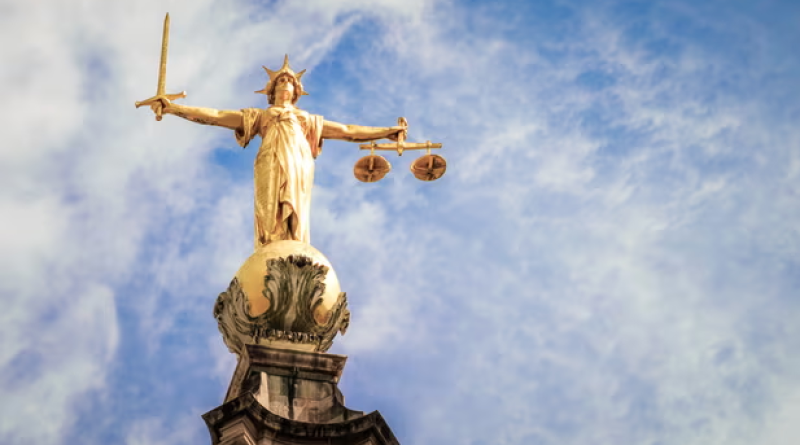Charge us with contempt too, say 40 people, if climate activist prosecuted

Fellow activists who have made protests similar to Trudi Warner’s challenge solicitor general as he decides whether to charge her.
Forty people, including an Olympic gold medallist and a former police officer, are calling on the solicitor general to charge them with contempt of court if he prosecutes a social worker for holding up a placard outside a climate trial.
The solicitor general is weighing up whether to charge Trudi Warner, 68, with contempt of court for a protest outside a crown court that was hearing a trial relating to direct action by climate protesters. She held up a placard stating: “Jurors: you have an absolute right to acquit a defendant according to your conscience.”
Warner made the protest in March after a judge restricted defendants in a string of trials from mentioning the climate crisis, insulation or any motivation for their direct action. She was committed to the Old Bailey for contempt of court proceedings, where a high court judge referred the case to the solicitor general, Michael Tomlinson KC, to decide whether to pursue contempt proceedings or charge her with attempting to pervert the course of justice. A decision is expected soon.
In a letter sent on Thursday to the solicitor general, 40 members of the public who have taken part in similar placard holding protests outside climate trials said that if Warner was charged then they should also be charged. The letter said: “Since we, the undersigned, have taken precisely the same action as Trudi, if you intend to proceed with your application, we invite you to prosecute us too.
“The context for Trudi’s action is a concerted and cynical programme to erode the right to trial by jury, following a series of politically embarrassing jury acquittals of those who have sought to expose government and corporate injustice and oppression.
“In the face of such violations of our ancient liberties, it should come as no surprise that members of the public are ready to take a stand. Such was the context for Trudi Warner’s simple and truthful sign.
“Like Trudi, we are willing to defend the principle of the right to trial by jury … even if it leads to our arrest and imprisonment. We have taken precisely the same action as Trudi on various dates and at various courts.”
One of the signatories, Paul Stephens, 58, is a former police officer. “I joined the police in 1983 to protect the good people from the bad. Simplistic I know, but I was 19,” he said.
“The legal system in the UK is doing the exact opposite. They are protecting polluters, allowing increased harm and obscene profits; while prosecuting people trying to save life in a way that is so unjust; gagging them from sharing their motivation with the jury. Extinction changes everything and the legal system must wake up and become a force for good.”
The Olympic canoeing gold medallist Etienne Stott, who walked free after a district judge threw out charges against him for a separate climate protest, said: “Why is the solicitor general targeting one woman pensioner, when dozens of us have done exactly the same thing? The ancient principle that jurors have a right to acquit a defendant as a matter of conscience whatever a judge tries to tell them to do … I feel strongly that as citizens … we all need to know where we stand with this.”
Climate activists have been protesting outside trials since defendants in a string of trials were prevented from mentioning climate change, global heating and the civil rights movement in their defence.
A number of defendants at Inner London were subsequently sent to jail for contempt of court for ignoring the ruling and addressing the jury about why they had taken action. Amy Pritchard and Giovanna Lewis, who were both jailed for seven weeks after they ignored the judge’s ruling not to mention climate change in their address to the jury, are appealing against their conviction for contempt of court.
The government legal service has written to Warner to say the solicitor general is discussing with the Crown Prosecution Service whether to charge her with attempting to pervert the course of justice. The letter said he considered her action “amounted to contempt of court at common law, on the grounds that it was a direct interference with the administration of justice”.
“Jurors are entitled to go to and from court without being confronted or told by members of the public how they should be discharging their duties,” the letter said. “By presenting your placard to them, you interfered with that right and your conduct represented a serious interference with the administration of justice.”
A spokesperson for the solicitor general said the law officers were yet to make a decision on the Warner case and they could not make any comment.
Photograph: georgeclerk/Getty Images/iStockphoto





